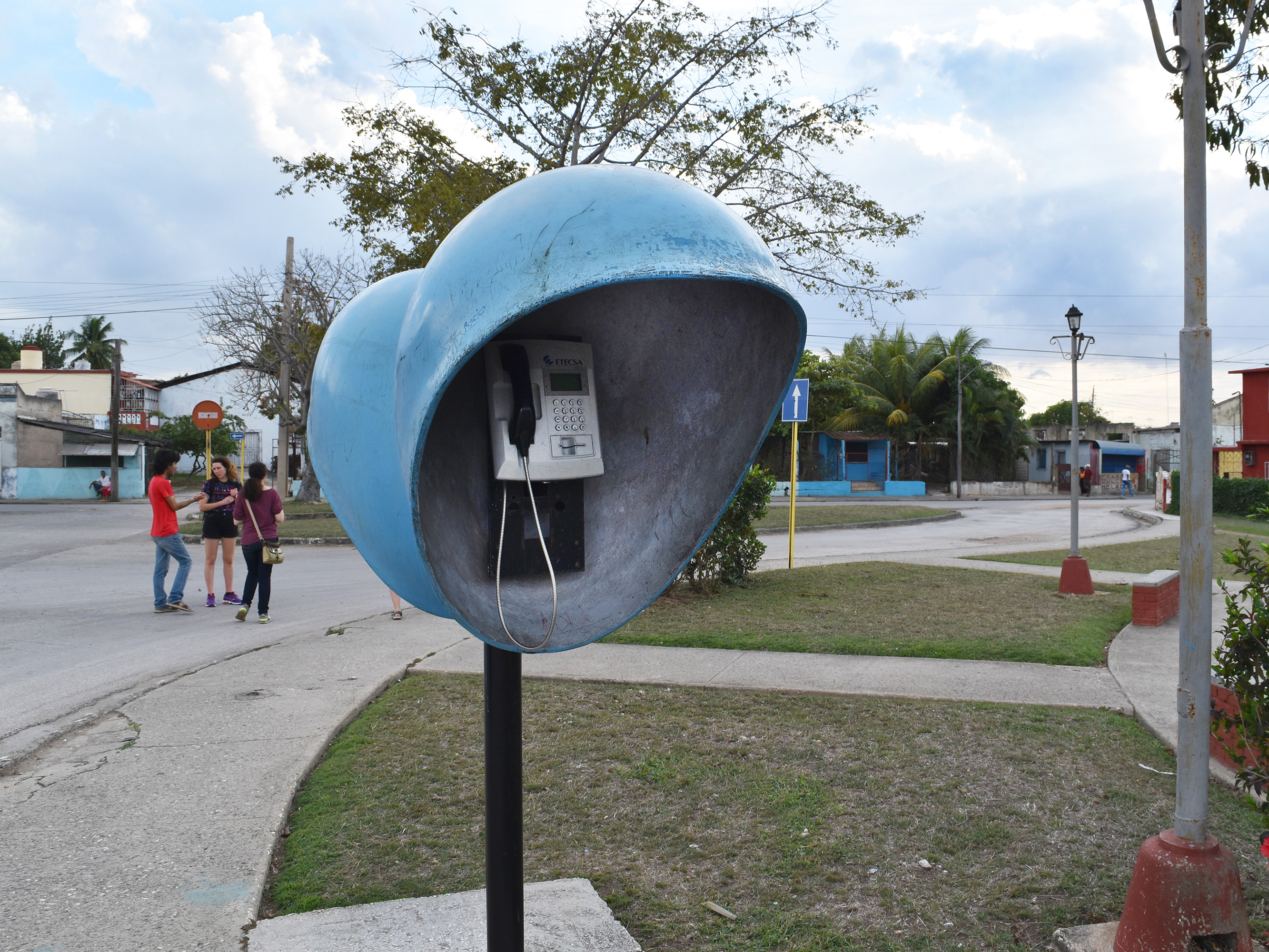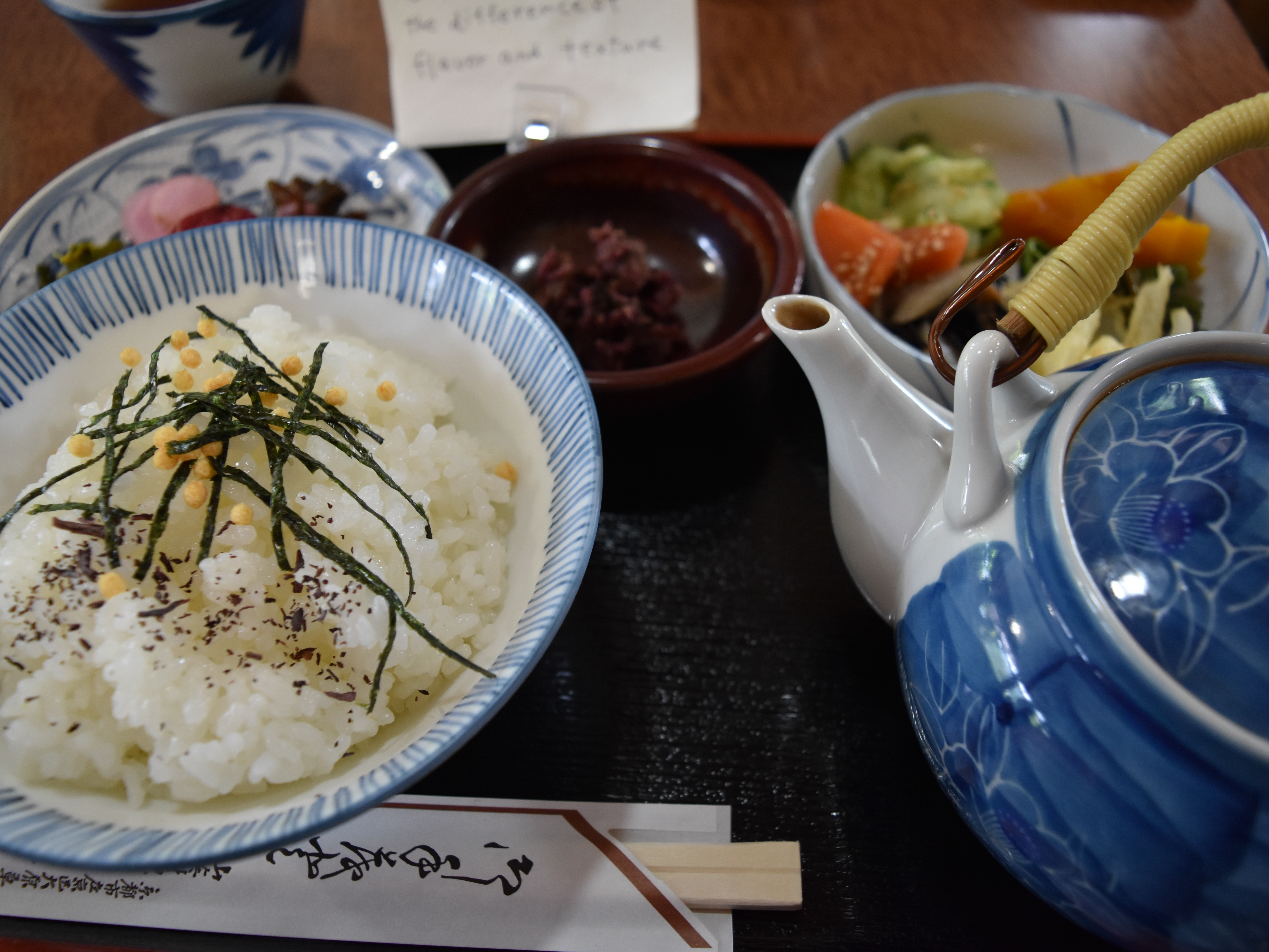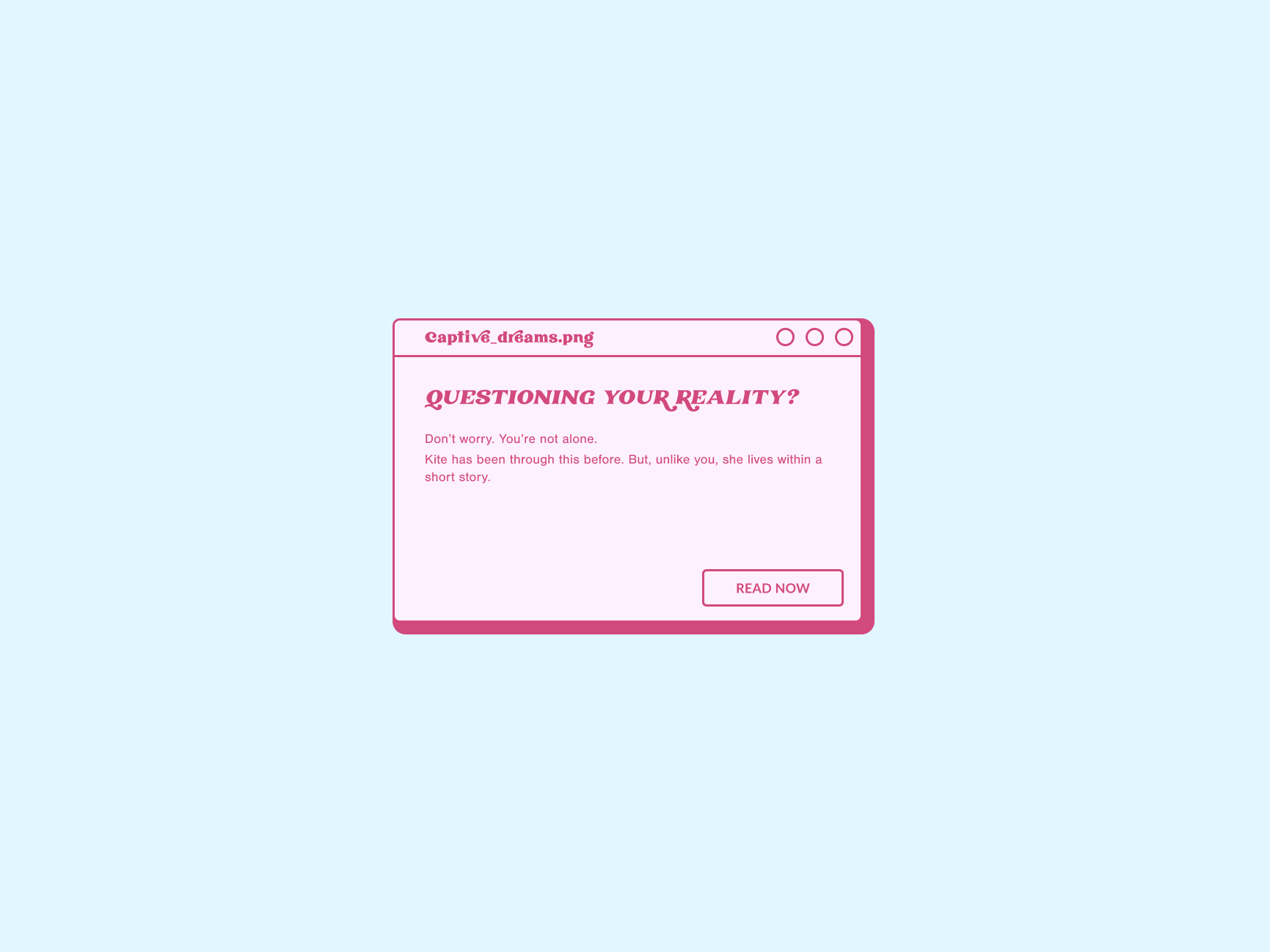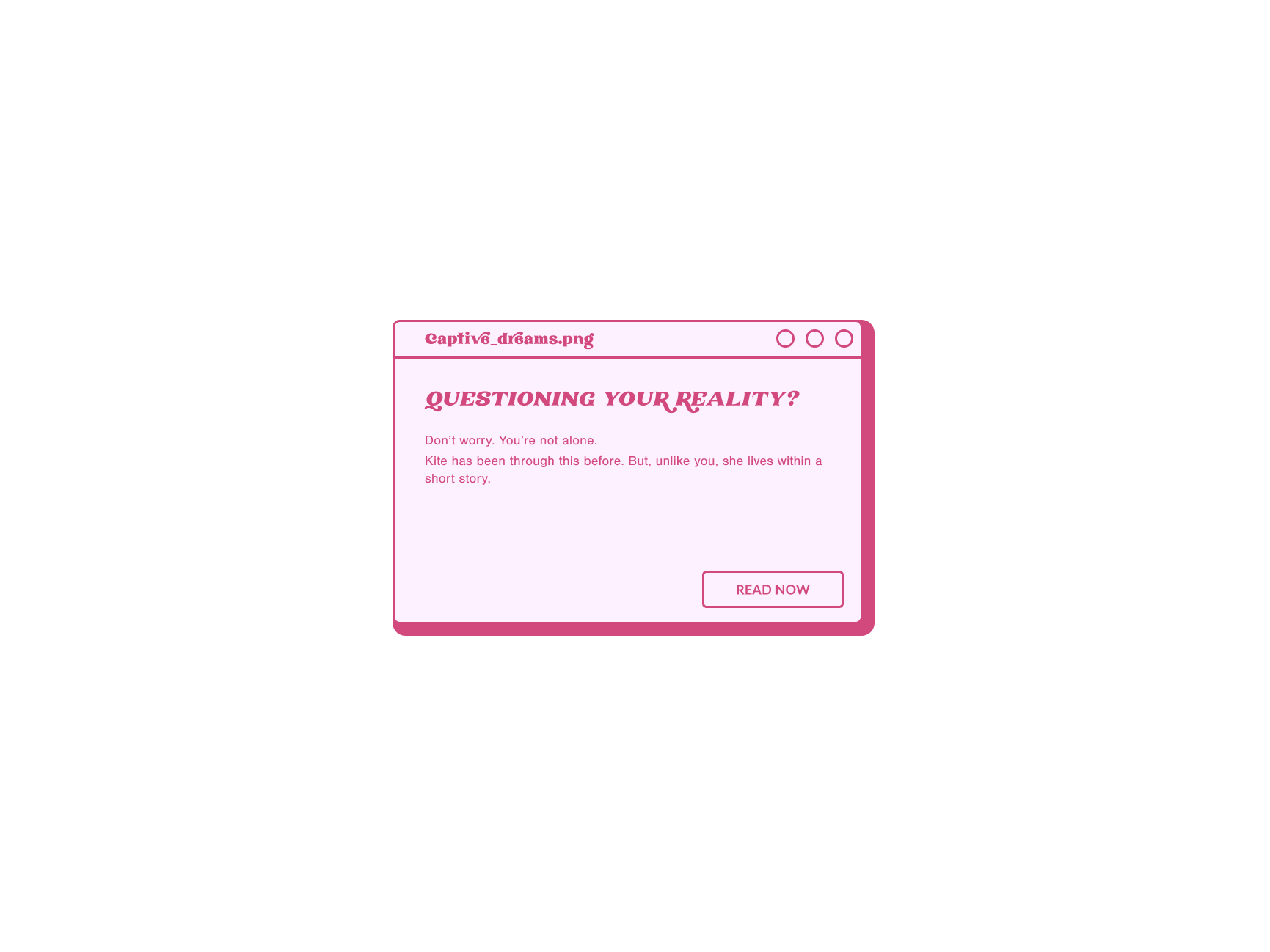The woman had a perfect, elegant nose if looked on from the front. From the side it was angular and harsher than her little lips. If she turned her face you would notice a bump left over from a break. If she raised her chin you would see that birth had caused one of her nostrils to be smaller than the other.
And if you studied her carefully in twilight, then you would notice that the cartilage at the tip of her nose was out of alignment. Occasionally the woman would remark upon her nose and show an acquaintance that by pinching it in the middle, she could set the cartilage to the correct location.
The unsettling situations that it could create made her nose all the more perfect.
In young pictures of the woman, she had a brown bob and straight bangs which reflected the straight line that her mouth made. The woman did not remember being a sad child. And even now, though she lacked wrinkles from not smiling, she did not feel sad.
No, she remembered being loved. She remembered telling others proudly that her eyes were a mix of both of her parents’ eyes. Her eyes contained a gold ring around the pupil. Her mother’s eyes were hazel. The rest of her eyes was blue, just as blue as her father’s eyes.
Her eyebrows might have been a continued similarity between her and her father, but the woman had doubts about them. Do you want me to clean them up? The hair cutters always asked. The woman wished she could do so like other girls, but her mother had—
“I love your eyebrows and freckles. My eyebrows have always been thin and my own freckles have faded.”
Mother had En on her lap and was stroking the girl’s eyebrows. They were slightly lighter in color than they would be when En was a grown woman. And despite the fact that En was ten, too old to be sitting on her mother’s lap, she patted her mother’s knee and rested her head on her mother’s shoulder. No thoughts were in En’s mind. In these moments she was more a part of her mother than herself.
And even after slipping off her mother’s lap, her face retained that same expression. As if there was still nothing being thought in that mind, as if En’s consciousness was in some other place altogether–
Maybe, the woman thought, I was not sad, but apathetic. And that did seem true because teachers had said that En was a quiet child. One even said that she was eerie. He told the others of an occasion when En had traveled behind him for a mile before he noticed her. When he inquired where she was going when her home was miles in the other direction, she had merely blinked and walked away.
The thoughts that others had of En were only based on what she decided to show others. She kept her eyes wide to convey innocence while her mouth was perpetually set in a line of neutrality. This neutrality had come to her in the war between her brothers. The war had lasted much of her childhood and had ended suddenly when her oldest brother joined the ranks of those who forged, stole, and hacked.
Her other brother, frustrated and ready to take to the other side began studying law. He was fifteen and lost to the library. Their brother had left the house completely; he was eighteen. En was ten; she played with dolls and created mundane stories of joined houses and passionate love.
Mother was worn-down and felt alone. En would sit on her lap and stand at the front of her shopping cart. Mostly En was solitary and apart from other children.
Yet, on one occasion, En brought a girl – Marie – to her house. Mother removed dusty cooking sheets from a cupboard and prepared to make sugary treats for the two girls. En showed Marie down a staircase with hanging, framed photos. The glass of these photos was as equally neglected as the kitchen.
En bypassed these photos, perhaps with no thought for the male members of her family. Marie, however, cleaned dust off one of the photos. When the pixels underneath the grime were revealed, she flinched back. The only person smiling was the mother.
“Are these your brothers?” The picture was taken a year before the brothers’ war had begun. En reached out and touched one of her brother’s faces as if she would be able to feel the skin through the glass, paper, and wood. Had she forgotten their faces already? “Your dad doesn’t look fun. Mine–"
“This is Be and that’s El.” She pointed first to the older, then the younger brother. After studying their faces for another second, she dropped her fingers and walked down the remaining steps.
“Are they home? I wish I had a brother. I wish I had a sister too. It’s boring being an only child.”
En nodded, but Marie decided that the other girl didn’t really understand. En had two siblings who would play with her at any time. Marie wasn’t allowed to leave the house after seven o’clock.
Then, Marie looked back at the photo and felt fear creeping up from the bottoms of her feet, into and through her veins until it reached her throat and settled. What would it be like if her father showed her that blank face? If she had siblings and they did the same? Did she really believe that En played happily with her brothers when she didn’t play with other children in school?
“No,” Marie whispered, breathed the fear into her mouth, and chewed it up into shreds. No, Marie thought, there’s something sad and strange about this family. She turned away from those faces and walked down the remaining stairs. En stood next to a large cardboard box and Marie searched for emotion on En’s faces. Other children would have complained about how slow Marie had been.
En gestured to the box. “My father cut out squares for windows and a rectangle for the door. We then attached wooden poles above these shapes and hung old fabric. This makes the box seem like home.”
This time Marie was the one nodding and not understanding. Why was En showing her this box? Was it supposed to be fun? Why had Marie even decided to accept En’s invitation to her house? Marie sighed and tried to think of ways to crack the mask of nothingness on En’s face. Maybe a joke?
“Is your dad named a letter too? Is he A or C or even Z?”
En looked up as she was entering the box. Her eyebrows pushed down and her mouth pinched together, lips disappeared into the paleness of her face. “I’m not named after a letter. En is short for–”
“So, your face doesn’t always look like that.”
“Like what?” This time Marie heard a heaviness in En’s voice. Her voice sounded like the voice of an old woman who had explored the whole world with her hands. The bottoms of Marie’s feet began to itch. She ignored it, pushed the corners of her mouth higher up, and took a deep breath.
“Like it does… when I do this!” And Marie dove at En. En fell through the doorway of the cardboard box and onto a pink blanket darkened with use. Marie landed half inside of the box and pulled herself fully into En’s small world. She laughed.
“You should try smiling.”
En ignored Marie, possibly feeling some annoyance toward the other girl who acted differently from how the rumors had portrayed her. She looked to the corner.
On top of an upside-down flowerpot was a book. A line of light shone onto the cover, illuminating an unbeatable and feline woman who laughed at those afraid of needles and walked across coals for fun. En took the book off its platform and extended it toward Marie.
“What’s that?”
“This is my book. It’s what I brought you here to see.”
Marie traced the contours of the title. And the woman winked at En as if they shared a joke that only they understood. Marie took her hand away and tucked it under her leg.
En turned to the first page and her lips tilted up. Marie coughed, air stuck in her throat. She pushed the blanket out from under herself; it smelled like En and fire. The whole box was filled with the presence of the other girl. Marie watched, scratching her feet as En spoke and words came out of her mouth as if they were being unwound from a spool; each was attached to the next.
At first, Marie was interested. She leaned forward, squinted at the small, nearly illegible print, and wondered what was so special. Letter after letter of a foreign language. Was En reading from this book? The words circled around Marie’s head and tugged on her hair playfully. But they didn’t go in Marie’s ears and they lost their fun the longer they were out of En’s mouth.
The breeze of words took form around Marie and she knew that this was what En had brought her here to witness. Excitement quickened her heartbeat and her wrists tingled. Thin chains of the words swirled visibly around Marie. This was absolutely marvelous!
Marie reached out her index finger and stroked the first word. It glowed like a dewdrop containing the sun. At first the word felt like tissue paper, then it molded to her finger and sunk in. She yelped and tried to move her arm, but the chain of words wrapped around it as it fed itself into her. It traveled up her arm and wrapped itself around her neck, silencing her voice.
It wasn’t until the ropes were winding themselves about her torso that the fear returned to Marie, traveling first through her feet, as always. If she had been able to speak then she would have pleaded, screamed, and broken En’s eardrums. But she was a silent witness to this unnatural situation. Her heart beat slowly, maybe it was in shock.
Tears stained Marie’s eyes, but En didn’t notice, because she was giggling and pointing at the page while the words unwound from her mouth. En’s laughter moved Marie’s fear from her feet to her stomach where it separated into hungry tadpoles which nipped at her organs.
The sound of Marie’s heart joined the words in the tight space of the box. En’s cheeks were pink and Marie noticed that En’s mouth was in a different shape. Marie would not have believed that this girl was En if she hadn’t witnessed En’s changes herself.
Shock at these changes in En ruled Marie for only a couple moments. It was quickly defeated by the fear and its squirming tadpoles. En was not going to help Marie. En was only interested in herself and this ridiculous book. If she could have, Marie would have ripped it out of the other girl’s hands and shredded it.
There was a chafing noise as pages rubbed together. The words leaving En’s mouth were interrupted and so were the ropes around Marie; they loosened slightly, allowing her to breathe easier. Then En looked up from the book and at Marie.
“What’s wrong?” She gasped and this change of her face was almost as unexpected as the last. There was clear fear in the tightening of her mouth and nostrils, in the lines of forehead, and around her eyes.
“Oh,” she whispered, seeing the glowing words underneath Marie’s skin. “You’re not– you’re not… you’re not like me…” Her hands rubbed along the spine of the book and she closed her eyes.
Marie waited. There was nothing else for her to do. En would either solve this or Marie would be stuck, kneeling forever. The dark-haired girl opened her eyes wider than usual and they observed Marie in a way that she had never been looked at before. She wondered if En was examining her soul.
Then En reached out and slid her fingers down Marie’s neck. If she could have, Marie would have screamed. The pain was worse than glass shredding skin. When En withdrew her fingers they were coated in threads of fading colors.
Marie took a deep breath and said, “What… what– what… what?” With the withdrawal of the words she felt as if the thoughts that she should be capable of forming were gone forever.
“Read this. If you can read this then it will be fine.” En thrust the book at Marie. Her mouth was in its neutral position again, but she could have been feeling doubt. On the page there were bright and carefully drawn lines the width of a line of words even though—
“There’s nothing there,” said Marie and En’s mouth went down. Down to dissatisfaction, down to anger. For a moment both listened to the hum of electronics and the gurgle of a fish tank. Then En set her mouth back to its standard line.
“You can’t see it.” En flipped the page and it lacked words just as the previous had. Marie cringed away.
“There’s nothing wrong with me.” Was it actually a problem with her? Was she hallucinating all of this? It was true that she had problems with her vision. She had gone to the doctor a year ago because she needed glasses, but she had rejected the very idea of them because—
“None of the other girls have glasses. They’ll make fun of me and I’ll be the geeky one. They’ll steal them and then laugh when I can’t find them and I’ll have no friends.”
“Sweetie, I’m sure we’ll be able to find an adorable pair…”
“No!” Marie’s face reddened and her hair stuck up in spikes. “I’ll break them if you buy them for me.”
Marie made good on her threat by stomping the glass into shards and into her feet. Her parents decided that the pain was punishment enough. They didn’t buy her another pair of glasses.
Coincidentally, the wounds made Marie famous in her elementary school and caused En to invite her over so that they would be able to share with each other what should have been known to both girls—
“You’re not like me. You’re blind.”
Marie knew that words didn’t just disappear and didn’t form ropes. Yet they were still around her torso, arms, and legs. If these words could have shape, then couldn’t words also disappear? She could believe it, she could know that there were words there that she couldn’t see. Just as she could know the pent-up energy of the words that had been absorbed by the cardboard that if she rubbed her hand along the box. She could know and she knew.
She knew, she knew that there was nothing wrong with herself. She just needed glasses that she didn’t want and had jagged scars on the bottoms of her feet. There was nothing wrong with her. She knew that there was nothing wrong with her.
“You can’t see it.”
The tears from earlier were back. They had only left for a time like how the sun brightens the world then retreats behind clouds to allow the rain to take over.
“I was wrong about you. I never should have tried to show you.”
All of En’s words seemed true and Marie believed them just as she believed that En was crooked. She wanted to stand. The words held her.
“Let me go!”
“I’m not keeping you here.”
“Your words are!”
“I have no idea what you’re talking about.”
And just like that the ropes were gone as if they had never slithered underneath Marie’s skin and traveled her veins. She stood. Her head hit the ceiling of the box. Her legs trembled. She took a step back and out of the cardboard home. Had she imagined it? Marie felt like she was being held up by a puppeteer’s strings.
Her toes embraced carpet; it gripped her toes, unlike unyielding cardboard. Her eyes focused on the fish tank where two large goldfish circled each other. They each waited for the other to have a moment of weakness. Marie looked back. En was enshadowed. En’s words were strong.
“Goodbye.”
Marie ran and escaped out through the first door she found. The sun was welcoming and she could see it. Yes. There it was. Up there. Visible.
She went home, but didn’t sleep because she knew, she knew if she fell asleep, then when she awoke she would be blind.
Back in the box, En curled up in a ball with her blanket about her and the book pressed to her chest. Heartbeats reverberated through it and En wondered what came next until she was a woman glancing in a glass window and seeing sharp edges.
She had used the years to file these edges to points. The woman looked down the street, ignoring the walking trousers and swinging shirtsleeves. There wasn’t a person for her to use her edges on. So she moved and her mouth remained in a line.




